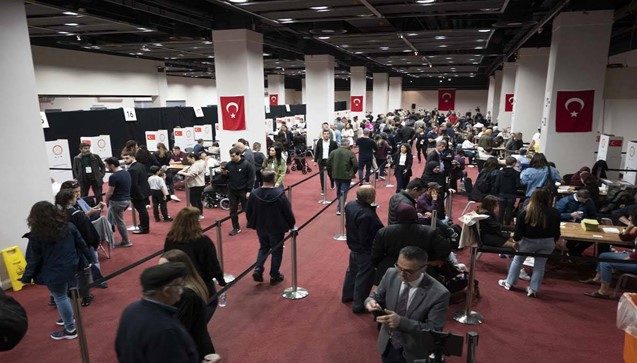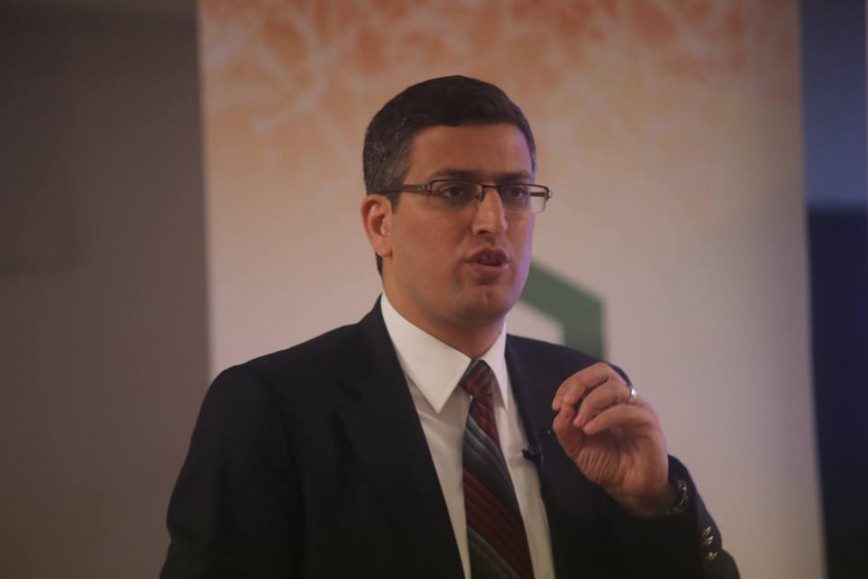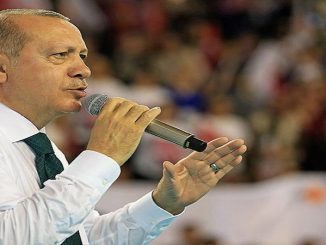
About 500,000 million Turkish nationals abroad have cast their votes in the country’s foreign missions and customs gates in the second round of the country’s presidential election scheduled for May 28 at home, reported Anadolu Agency.
Since overseas voting began Saturday, 452,257 voters cast ballots at Turkish diplomatic missions, while 19,477 voted at customs gates, for a total of 471,734 people, according to figures from the Supreme Election Council (YSK).
Voting at diplomatic missions will end May 24, while the process will continue at customs gates until 5 p.m. local time May 28.
Millions of voters went to the polls May 14 to elect the president and members of the Turkish 600-seat parliament.
President Recep Tayyip Erdogan’s People’s Alliance won a majority in parliament, while the presidential race is headed to a second round.
In the first round, no candidate won an outright majority, although Erdogan was leading.
Erdogan will face Kemal Kilicdaroglu, the leader of the main opposition Republican People’s Party (CHP) and joint candidate for the six-party opposition Nation Alliance, in the runoff vote.
In an interview, the Turkish President discussed the second round of the presidential election on 28 May, expressing his belief that the Turkish people will, once again, demonstrate their strong democracy, with a significant voter turnout reaching up to 90 per cent, AA reported.
Recep Tayyip Erdogan also addressed various topics, ranging from the election process to foreign policy during his interview with CNN International.
When asked about his comfort level, given his successful track record in winning elections over the past 20 years and breaking records, Erdogan reiterated his confidence in the Turkish people and their strong democracy, emphasising the importance of the high voter turnout. He expressed hope that the people would not disappoint.
On the reminder of US President, Joe Biden, labelling him as an autocrat during his election campaign, the Turkish President questioned how a person who made it to the second round, not the first, could be considered a dictator.
He stressed that the People’s Alliance would enter Parliament with 322 deputies, and the person leading the alliance (Erdogan) would emerge as the winner of the second round, asking: “What kind of dictatorship is this?”
When asked if he would work with the Biden administration if re-elected, Erdogan stated that there was no doubt that he would work with President Biden, and that if the Biden administration changes he would work with the new one as well.
In response to a question about the West’s stance towards Russia in the Ukraine conflict, with reference to his previous comments about the West pursuing a more provocative policy, President Erdogan said the West had not demonstrated a balanced approach in this regard.
He argued that a balanced approach toward a country like Russia would have been more appropriate. He emphasised the need for mutual cooperation in the world and highlighted his positive relations with Russian President Vladimir Putin, suggesting that the West should adopt a similar approach.
Erdogan also mentioned the Black Sea Grain Corridor, where Turkey meets the needs not only of the West but also of African countries, highlighting the extension of grain processes with Russia, thanks to his special relationship with Putin.



